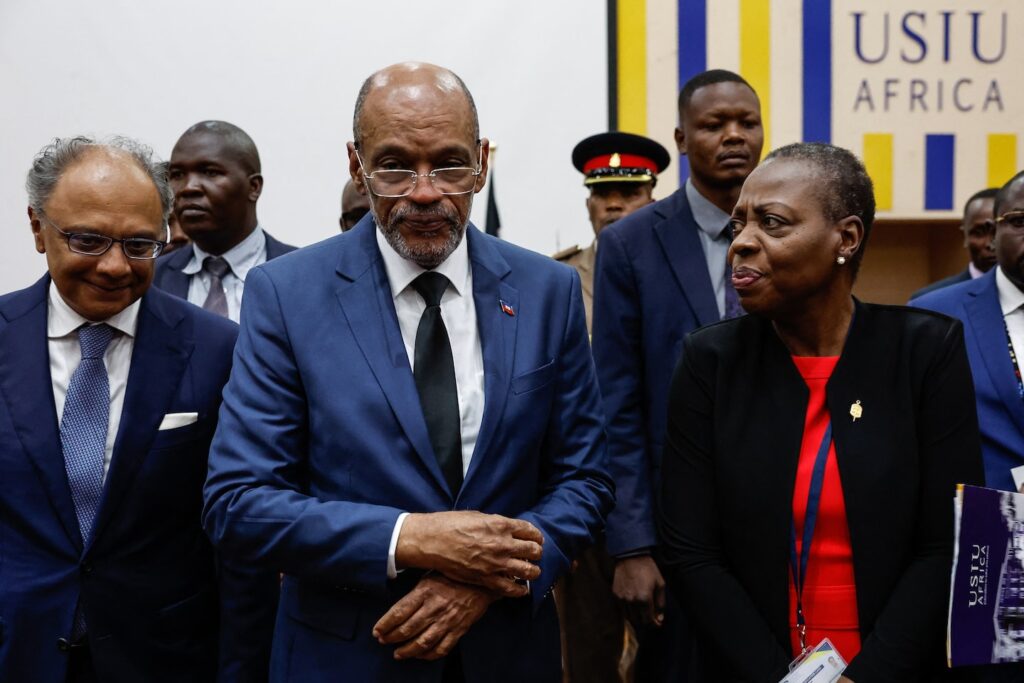In a video address Monday night, Henry said he would resign “immediately after the establishment of this council.” Council members are elected by representatives of several sectors of Haitian society. He said Henry's government would continue to handle day-to-day operations until a prime minister and new government were appointed.
His resignation announcement comes as Haiti faces one of its worst crises in decades. Armed groups have tightened their grip on the capital, attacking the airport and major ports and threatening civil war if the prime minister does not resign. Henry was unable to return from a diplomatic trip to Kenya last week. Port-au-Prince airport was attacked, so he flew to Puerto Rico instead.
“The government I lead cannot remain indifferent to this situation,” Prime Minister Henry said in a speech published on social media. “Haiti needs peace, stability, sustainable development, and the rebuilding of its democratic institutions. I urge you to do all you can.”
As violence escalated over the past week, Henry came under intense pressure from the international community and the Haitian people to resign to make way for a new interim government.
Over the past year, U.S. officials have been pressuring the 74-year-old neurosurgeon to work with the transition council to help make the election happen, a senior State Department official told The Washington Post last week, but Henry “They were reluctant to transfer real power,'' he said. ”
Last week, the United States and the Caribbean Community proposed a quick transition of power, with a transitional council appointing an interim prime minister and Henry stepping down, as violence in Haiti “has become untenable,” a senior official said. . Anonymous in accordance with State Department regulations.
Haiti's presidential seat has remained vacant since the unsolved assassination of former president Jovenel Moïse in 2021, and the parliament has been vacant since the last lawmaker's term expired last year.
Henry was appointed by Moïse a few days before the assassination, but had not yet taken the oath. Immediately after the killing, the Core Group, a bloc of unofficial envoys from countries including the United States, supported him to lead Haiti. But last week, as the country's crisis deepened, the US State Department withdrew its support and asked Mr Henry to consider his resignation to make way for an interim government.
Ali told reporters that Henry is “in constant contact” with leaders of the Caribbean community and has “expressed in his actions and words his selfless intention to see Haiti succeed.” He said he promised.
Ali said the Interim Presidential Council will operate by majority vote and consist of seven voting members and two non-voting members. The latter group includes one member of civil society and one member of the interfaith community.
Those who have been indicted, under UN sanctions or convicted of a crime are excluded. Those planning to run in the next election and those who oppose the U.N.-backed multinational security mission to Haiti will also be barred from participating.
Among them is Jimmy Chéridier, a former police officer who is the leader of Haiti's most powerful gang. The United Nations imposed sanctions on him in 2022.
They include Guy Philippe, a former rebel leader who led the uprising that ousted then-president Jean-Bertrand Aristide in 2004. Philippe returned to Haiti in November after being released from a U.S. prison last year, where he was serving time for drug money laundering conspiracy. Since then, he has slammed the UN-backed mission and tried to rally support for a “revolution” to remove Henry from public office.
Mr. Ali did not specify the establishment of an interim presidential council or a timeline for elections.
“Haitian participants must now fully fulfill their commitments,” he told reporters. “It is the duty of all Haitians to give the agreement a chance to work, and we ask all parties, all stakeholders, and all Haitians to be patient.”


